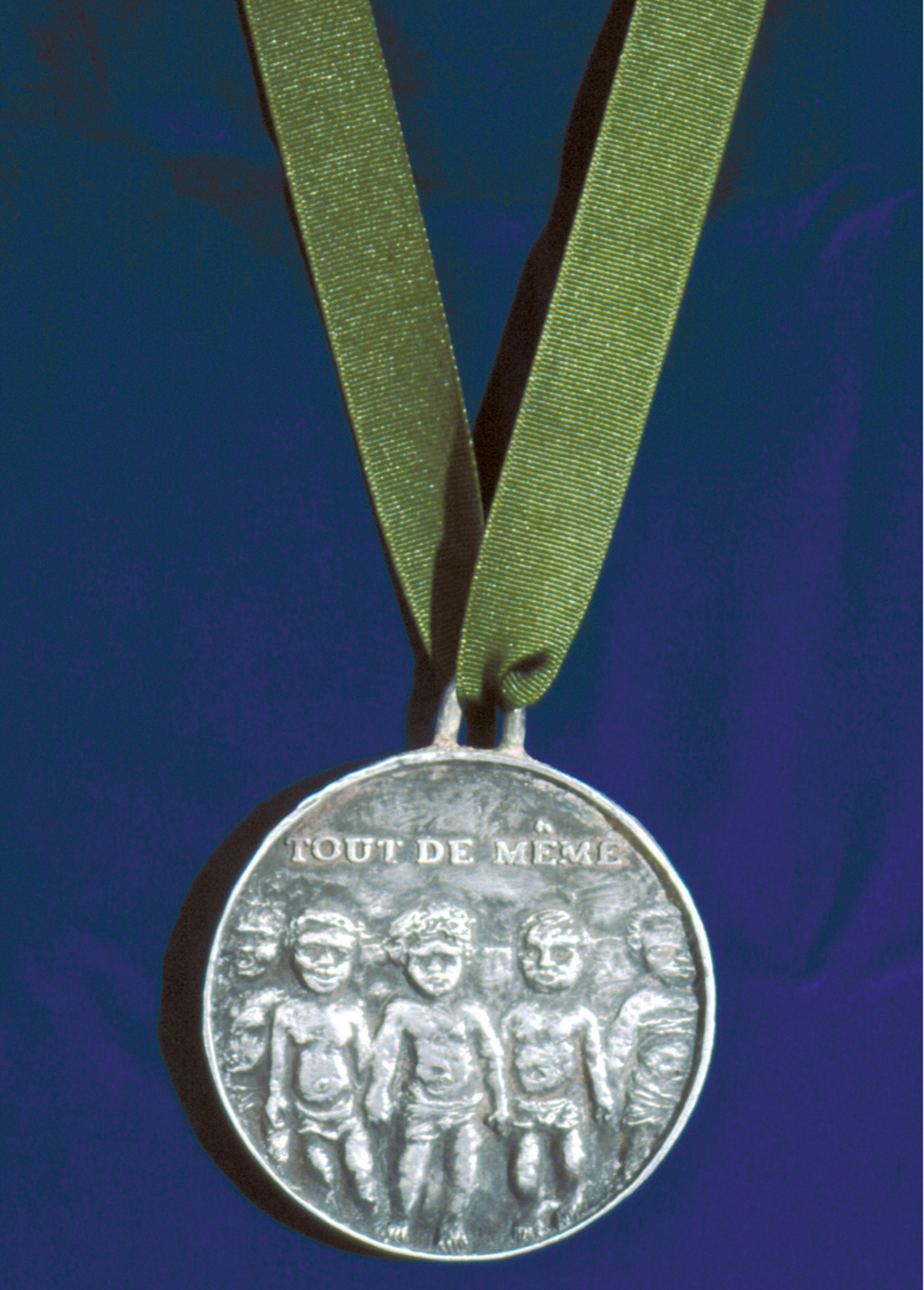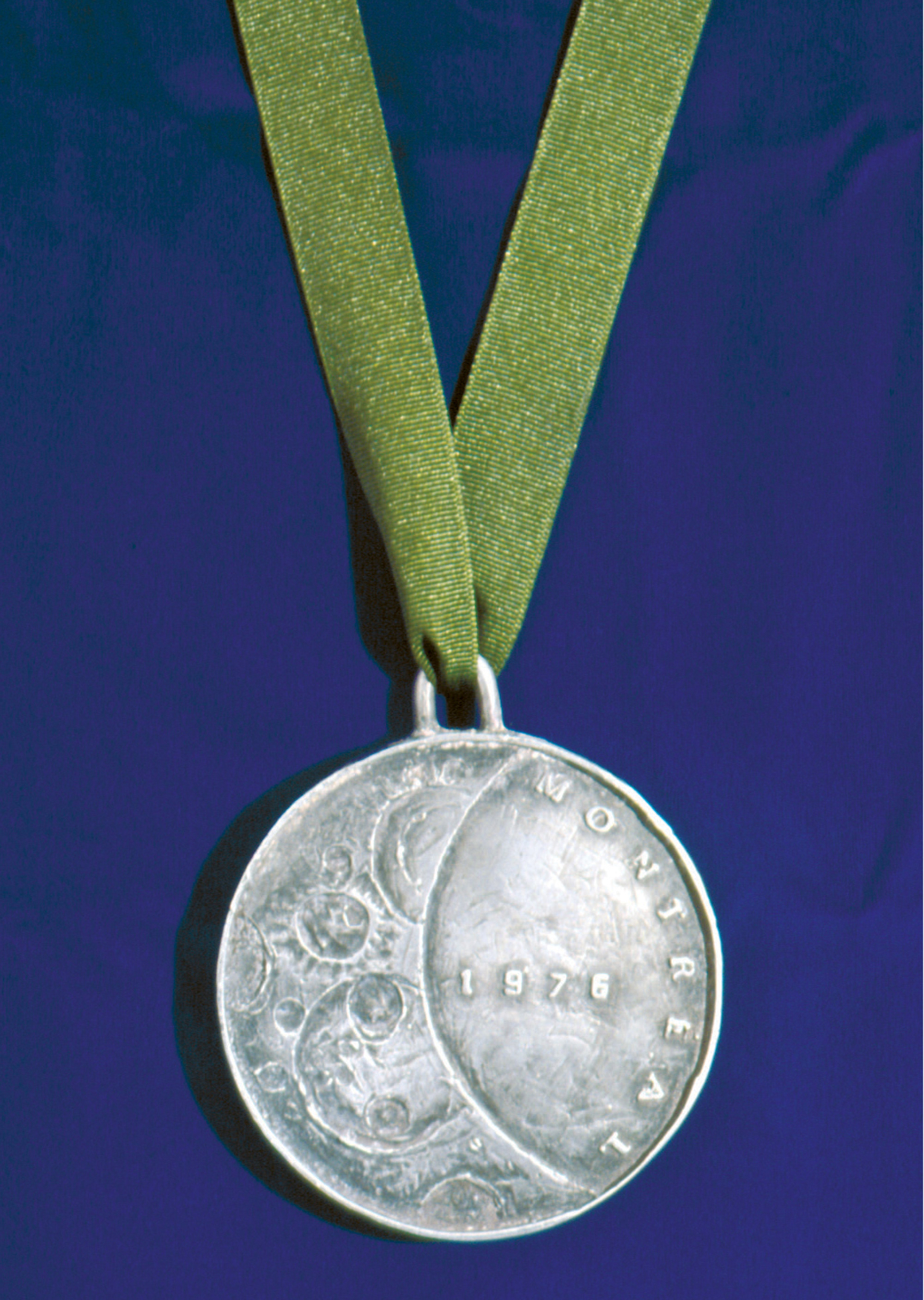Unlimited Edition / 1976 Montreal Olympics Participation Medal
For those who strive and fail
Kris Lee
At the 1976 Summer Olympic Games in Montreal, the Canadian Olympic Committee voted to award a special Participation Medal to all competing athletes who failed to win a gold, silver, or bronze medal. The committee took pains to stress the unofficial nature of their medal. “The Participation Medal is a gift of thanks from the people of Canada to all the athletes of the world,” the committee’s statement read. “The true Olympic spirit is embodied as much in those who strive and fail as in those who glide to victory.”
The award was cast in aluminum and was the approximate size and shape of the conventional medals. One side depicted five cherubs holding hands, symbolizing the five continents, beneath the words Tout de Même (“all the same”). The other side showed the face of the moon in partial eclipse. According the committee’s statement, this symbolized both Man’s inexhaustible ambition and the cyclic nature of all things.


The official award ceremonies were to be followed by the presentation of the Participation Medals to all the non-winning athletes. The first event to be completed during the games was the platform dive. Avery Brundage, the President of the International Olympic Committee, attended the awards ceremony. When the losing athletes lined up in front of the award podiums and received their Participation Medals, Brundage, who had not been informed in advance of the Canadians’ new ritual, was so enraged he rushed out and confiscated the medals by pulling them off the necks of the athletes. He refused to even consider the Canadian Committee’s appeal of his decision and ordered the medals destroyed. He personally monitored their destruction in an Ontario foundry.
Brundage did not manage to confiscate all the Participation Medals. Kris Lee, an 18-year-old Chilean diver who had finished 23rd in the event, slipped off the stage and returned to the athletes’ village. Lee refused to give up the medal despite repeated entreaties from Brundage’s office. In return, Brundage vindictively canceled the 50-kilometer race, Lee’s brother’s specialty, the only time the event had not been held since its introduction at the 1932 Olympic games. On hearing that Brundage had ordered that the medal be physically seized and destroyed, Lee abruptly left Canada and returned to Santiago.
Lee retired from competitive diving and worked for a few years as a schoolteacher in Montevideo, Uruguay. In 1981, Lee enrolled in art classes at the Federal University of Rio de Janeiro and has exhibited widely throughout South America and Europe since 1985. Best known for conceptual projects that blend tough-minded critiques of institutional hegemony with a romantic pan-nationalism, the artist has often cited the events in Montreal as “the crucible for my artistic thought.”
As a special project for Cabinet, Lee has produced an unlimited series of aluminum reproductions of the original Participation Medal. The reproductions are available for $50. Twenty dollars of this amount is tax-deductible in accordance with section 501(c)(3) of the Internal Revenue Code. Please email: editions@immaterial.net for orders.
Cabinet wishes to thank Matt Freedman for his invaluable assistance on this project. Replicas cast at the New Foundry in Greenpoint, Brooklyn. Photos Bill Orcutt.
Kris Lee and Matt Freedman met at the 1985 NCAA diving championships. They later discovered that they were distantly related.
Spotted an error? Email us at corrections at cabinetmagazine dot org.
If you’ve enjoyed the free articles that we offer on our site, please consider subscribing to our nonprofit magazine. You get twelve online issues and unlimited access to all our archives.